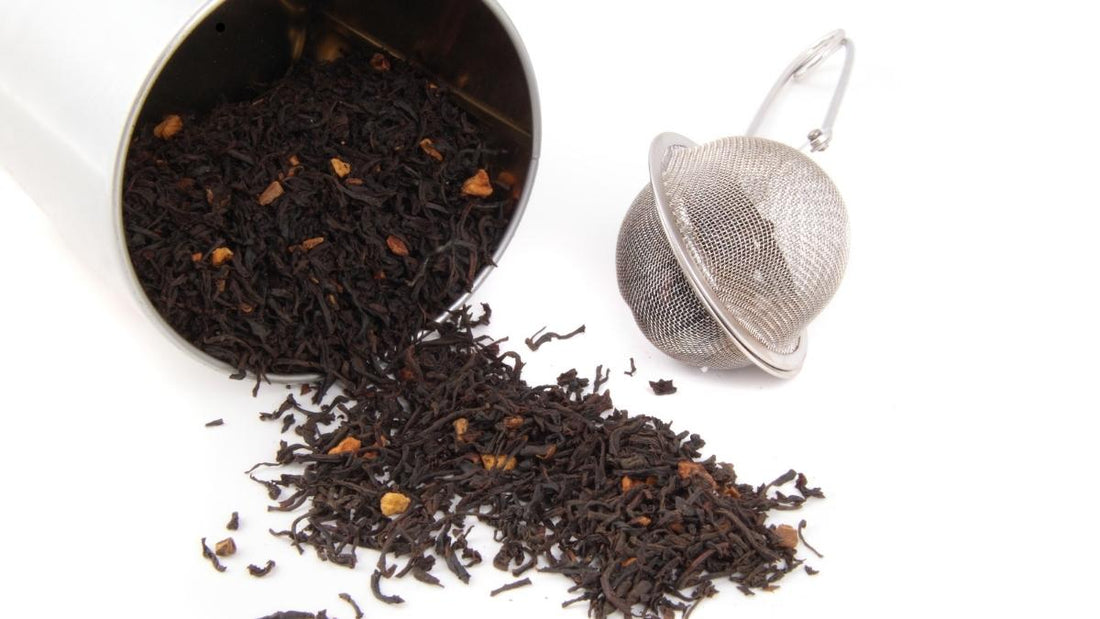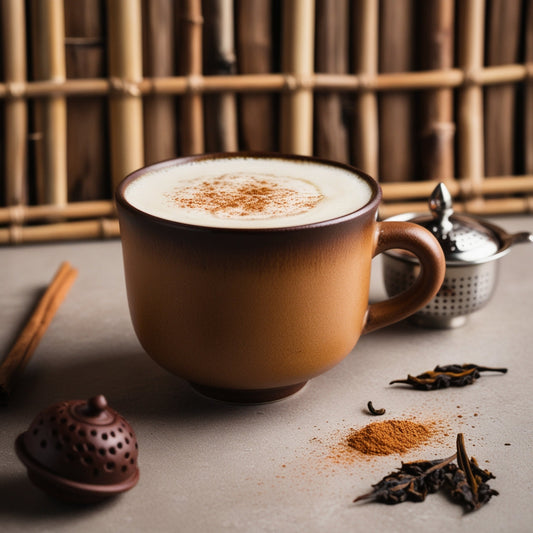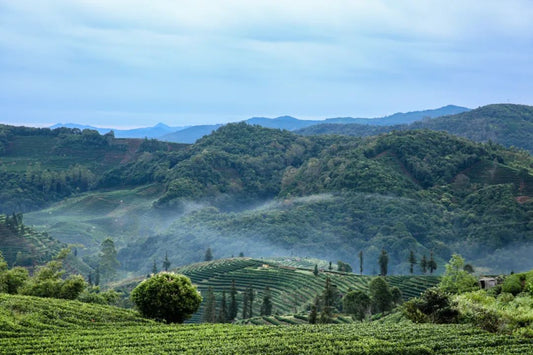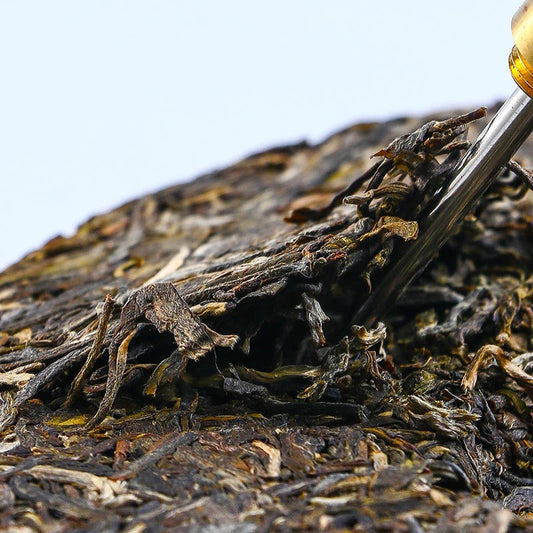Overview
Tea lovers often find themselves choosing between black tea and matcha, two of the most popular yet distinct types of tea available today. While black tea is known for its rich and bold flavours, matcha offers a unique smoothness and a vibrant green colour. The differences between these two types of tea go beyond their appearance and taste—they differ in how they’re made, their health benefits, and their cultural significance.
In this article, we will explore the key differences between black tea and matcha. By the end, you'll have all the information needed to choose the best tea for your daily routine.
Table of Content
- Introduction
- What Is Black Tea?
- What Is Matcha Tea?
- Differences Between Black Tea and Matcha
- Caffeine Content
- Why Choose Black Tea?
- Conclusion
Introduction
Both black tea and matcha hold important places in the tea world, each offering unique health benefits and a range of flavour profiles. Black tea is a fully oxidised tea, known for its robust, malty flavour. On the other hand, matcha, made from finely ground green tea leaves, offers an earthy, slightly sweet taste. While both teas come from the Camellia sinensis plant, their cultivation, processing, and consumption methods vary greatly.
What Is Black Tea?
Black tea is one of the most popular teas worldwide, especially in regions such as the UK, India, and China. Derived from the leaves of the Camellia sinensis plant, black tea undergoes full oxidation, which gives it its characteristic dark colour and strong flavour. The oxidation process is key here—after the leaves are harvested, they are withered, rolled, and allowed to oxidise, which turns the leaves from green to brown and enhances their bold, malty taste.
Historically, black tea originated in China, where it was first developed in the 17th century. It became popular globally due to its long shelf life and ability to retain flavour even after prolonged storage. Black tea is also the base for many blends like Earl Grey, English Breakfast, and Indian chai, which add spices, flavours, or citrus to enhance the tea experience.
Black tea also comes in several regional varieties. For example:
- Darjeeling tea, known for its light, floral flavour, comes from the mountainous regions of India.
- Assam tea, grown in the Assam region of India, has a malty, full-bodied flavour.
- Keemun tea, a Chinese black tea, offers a smoky, wine-like flavouur.
Each of these varieties brings a unique taste to the cup, influenced by the terroir, or the environment in which the tea is grown.

What Is Matcha Tea?
Matcha tea, unlike black tea, is made from shade-grown green tea leaves that are stone-ground into a fine powder. The process of producing matcha is labor-intensive, involving shading the tea plants several weeks before harvest to increase the chlorophyll content. This is what gives matcha its vibrant green colour and higher levels of nutrients.
Unlike traditional tea, where the leaves are steeped in water and discarded, matcha allows you to consume the entire leaf, delivering a more concentrated form of nutrients. The use of matcha has been traced back to Japanese Zen monks, who used the tea in their meditative rituals for its calming yet energising effects. Today, matcha has gained international popularity, especially in Western countries, due to its high antioxidant content, health benefits, and versatility in recipes.
The flavour of matcha is distinctive—slightly bitter with an underlying sweetness, often described as umami. It’s commonly prepared by whisking the powder with hot water to create a smooth, frothy tea. Additionally, matcha is used in various culinary dishes, from lattes and smoothies to desserts like matcha-flavoured cakes and ice cream.
Differences Between Black Tea and Matcha Tea
When comparing black tea and matcha, several key differences stand out:
-
Cultivation and Processing:
Black tea undergoes full oxidation, which transforms its colour and taste. Matcha is made from shade-grown green tea leaves that are minimally processed and stone-ground into a powder. -
Flavour Profile:
Black tea has a bold, malty flavour that can range from smoky to sweet, depending on the variety. Matcha offers a more subtle taste, with grassy, vegetal notes and a slight bitterness that some describe as savoury or umami. -
Preparation:
Black tea is typically brewed by steeping leaves in boiling water for a few minutes. Matcha requires a whisk to blend the powder into hot water, creating a frothy drink. This method of preparation enhances the texture and experience of drinking matcha. -
Nutrient Content:
Since matcha is consumed in its entirety, it offers a more concentrated source of antioxidants, vitamins, and minerals. The key antioxidants in matcha, known as catechins, have been linked to various health benefits, including improved metabolism and anti-inflammatory effects. -
Caffeine:
Although both teas contain caffeine, matcha typically contains more. Because you’re consuming the entire leaf, matcha delivers a slow, steady release of caffeine due to the presence of L-theanine, which helps modulate the effects of caffeine. In contrast, black tea offers a quicker boost of energy. -
Cultural Importance:
Black tea is deeply rooted in British, Indian, and Chinese tea culture. In contrast, matcha has been an essential part of Japanese tea ceremonies for centuries and is often associated with mindfulness and meditation. -
Health Benefits:
Both teas are packed with health benefits, but matcha is known for its high antioxidant levels. Black tea, on the other hand, has been linked to heart health, improved digestion, and weight management.
Caffeine Content
Caffeine content is a critical factor when deciding between black tea and matcha. Matcha generally contains more caffeine than black tea due to the consumption of the entire leaf. On average, one cup of matcha can provide 30-70 mg of caffeine, while black tea typically offers around 40-60 mg per cup.
However, the way the caffeine in matcha is absorbed differs from black tea. Thanks to L-theanine, an amino acid present in matcha, caffeine is absorbed more slowly into the bloodstream. This provides a more sustained energy boost without the sudden crash that often accompanies caffeinated beverages. Black tea, while slightly lower in caffeine, offers a more immediate but shorter energy spike, making it ideal for a quick pick-me-up.
Key takeaway: If you're looking for a long-lasting energy boost with calming effects, matcha is a better choice. If you prefer a more straightforward, immediate energy boost, black tea may suit you better.
Why Choose Black Tea?
While both black tea and matcha offer their own unique benefits, black tea is a great choice for those who enjoy a classic tea experience. Here are some key reasons to choose black tea:
-
Bold Flavour:
The robust, malty taste of black tea is perfect for those who enjoy strong flavours. Black tea is versatile and can be enjoyed plain or with various additives like milk, sugar, or lemon. -
Antioxidants and Heart Health:
Black tea is rich in flavonoids, a type of antioxidant that has been shown to support heart health. Regular consumption of black tea has been linked to reduced blood pressure, lower cholesterol levels, and a decreased risk of heart disease. -
Improved Digestion:
Black tea contains tannins, which can help soothe the digestive tract and improve digestion. Many people find that a cup of black tea after a meal helps with bloating and discomfort. -
Cultural Connection:
Drinking black tea is a part of everyday life in many cultures, from British tea-time to Indian chai. For many, black tea evokes comfort, tradition, and connection. -
Variety:
With so many regional varieties available, from Assam and Darjeeling to Keemun and Ceylon, black tea offers endless options for tea lovers to explore.

Conclusion
Both black tea and matcha bring distinct flavours, health benefits, and cultural histories to the table. While black tea offers a rich, robust flavour and a moderate caffeine boost, matcha provides a more earthy taste and a higher concentration of antioxidants, along with calming effects thanks to L-theanine. Whether you prefer the boldness of black tea or the smooth, meditative experience of matcha, both teas offer unique benefits worth exploring. Your choice ultimately comes down to personal preference and lifestyle needs.
Q&A Session
Q1. Is matcha healthier than black tea?
Matcha contains more antioxidants due to the consumption of the whole leaf, while black tea has been linked to improved heart health and digestion. Both have their unique health benefits.
Q2. Does matcha have more caffeine than black tea?
Yes, matcha generally contains more caffeine because it’s consumed in powdered form. However, the caffeine is absorbed more slowly in matcha, leading to a longer, steadier energy boost.
Q3. Can I drink both black tea and matcha daily?
Yes, both teas can be consumed daily. However, keep in mind your daily caffeine intake if you’re sensitive to it.
Q4. What are the main flavour differences between black tea and matcha?
Black tea has a robust, malty flavour, while matcha has a smooth, earthy taste with a slight bitterness.
Q5. Which tea is better for weight loss, black tea or matcha?
Both teas can aid in weight loss, but matcha is often preferred due to its high antioxidant content and metabolism-boosting properties.






